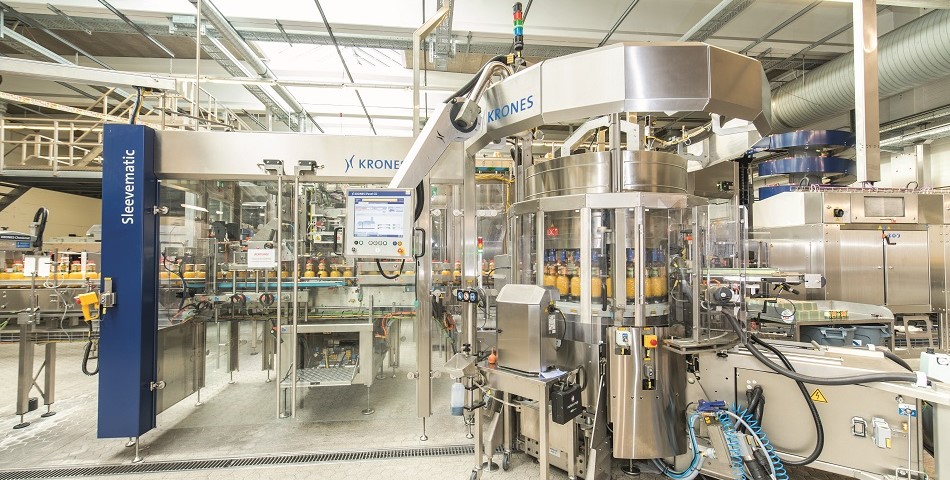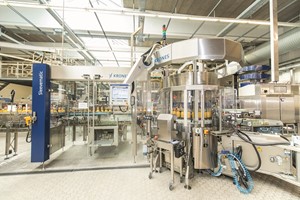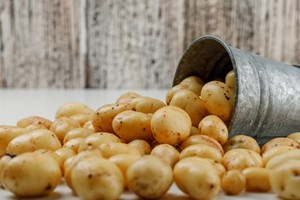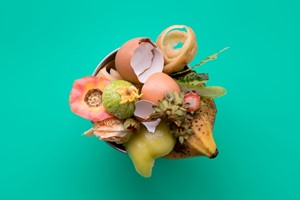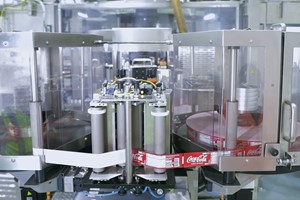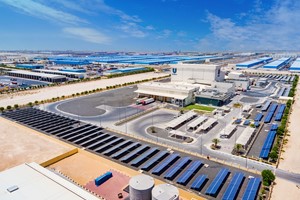After installing a PET-Asept D system five years ago, Eckes-Granini Deutschland GmbH has now commissioned a PET-AseptBloc D with a block-synchronised blow-moulder at its facility in Bad Fallingbostel. The company has opted for Krones once more, primarily because of the positive experience gained with their first line. And these two were not the only investments made: since 2016, Eckes-Granini has bought a new line almost each year for one or other of the group’s facilities.
The company’s ambitions are high: market leadership in all of Europe with premium products in the fruit-juice category. This is what the German family-owned company Eckes-Granini has successfully translated into hands-on reality. Throughout Europe, the group focuses on upmarket quality, with the aim of its brands being Number One or Number Two in the fruit-juice rankings. In Germany, Eckes-Granini Deutschland GmbH’s portfolio includes both of the market-leading brands: Hohes C and Granini. The Granini brand accounts for roughly a quarter and Hohes C for about a fifth of total group sales.
Biggest producer of branded fruit juices in Europe
With annual sales of approximately 850 million litres and revenue of almost one billion euros, Eckes-Granini is Europe’s biggest producer of branded fruit juices, with eleven national companies. The drinks maker operates eight production facilities, from Finland to France, and also cooperates with a network of co-packers. In Germany, Eckes-Granini is represented at three locations: at headquarters in Nieder-Olm and at two filling plants in Bröl and Bad Fallingbostel. Here in the southern part of the Lüneburg Heath, the company produces around 125 million litres of juice per year in continuous three-shift operation.
Positive experience
In its Bad Fallingbostel facility, Eckes-Granini started operation on a first aseptic line from Krones back in 2016, a PET-Asept D system rated at 36,000 containers per hour. It features dry-aseptic technology from Krones that lays claim to providing maximised sterilisation performance in conjunction with minimised media consumption. “Our first dry-aseptic line is a perfect combination of efficiency and flexibility, with marked beneficial effects on our sustainability record. Compared to our previous wet-aseptic line, we achieved savings of 20 per cent for electricity, 30 per cent for water and wastewater and 50 per cent for gas needed in steam generation,” explains Henning Hanisch, project and process manager at Eckes-Granini. And plant manager Hermann Naumann adds: “Krones turned out to be the perfect vendor, with spot-on microbiological know-how and field-tested technology. Ultimately, though, it was the TCO, i.e. the total cost of ownership, that helped tip the scales in favour of Krones.”
Attractive pluses for the follow-up project
The existing line installed in 2016 is a genuine multi-talent: it fills both still and carbonated beverages – with or without fruit cells –, it handles six different bottle shapes and sizes, plus three closure types, and offers a wide variety of palletising options for the different packs produced. As Henning Hanisch explains: “We opt for vendors with good expertise. Krones had at the time shown a high degree of flexibility, in order to make sure the time-critical format change-overs take a minimum of time. In this respect, Krones quite simply had the best concept.” Plant manager Hermann Naumann backs this statement up: “After our work together on optimising the complex first line, we were very surprised to see that the ‘big ship’ Krones also responded ultra-swiftly when processing smaller inquiries. We could always sense their readiness to keep on working on a certain solution until both parties, our company and Krones, were satisfied with it.” Henning Hanisch gives an example to underline this: “A real highlight at Krones is their excellent project work with top-notch employees and their commitment to providing service at any time. You must admit: getting a soundly based answer to your question via the hotline at three o’clock in the morning, that is surely an outstanding service and a huge advantage in terms of line availability. These were persuasively attractive pluses when considering the follow-up project.”
Compact-size line for low outputs
It was precisely this positive experience gained in the past that made sure Eckes-Granini opted for another aseptic line from Krones. This second line installed at the Bad Fallingbostel facility has been dimensioned for a rating of 13,000 containers an hour (1.0-litre and 0.75-litre bottles) and comprises:
- PET-AseptBloc D with Contiform 3 Pro blow-moulder, H2O2 sterilisation module and Modulfill VFJ volumetric filling system:
whereas in the first line it was a third-party blow-moulder that was linked up to the sterilisation and filling modules of the PET-Asept D system by means of AirCo conveyors, Eckes-Granini has now chosen to buy the complete kit from Krones, including the blow-moulder/filler block. - Modularised Starmodul labelling machine, block-synchronised with a Sleevematic machine and a Shrinkmat steam tunnel:
even though in the first line it was also possible to dress the bottles in wrap-around and pressure-sensitive labels respectively, or alternatively in sleeves, two separate labellers were needed for that: a Sleevematic and a modularised machine. - Variopac Pro FS packer with Varioshrink shrink tunnel and an integrated handle applicator:
which affixes the carry strap directly to the film reel in the Variopac Pro FS. After that, the sixpack is produced by wrapping the film (with the handle already attached to it) around the containers. “This method obviates the need to install an additional machine, which cuts the kit’s footprint,” says Henning Hanisch. - Modulpal Pro 2A palletiser with high-level infeed
Henning Hanisch had also been actively involved in the installation work for the first dry-aseptic line. “We’d already planned and commissioned the first aseptic line from Krones with more or less the same project team. Here in our company that was seen as a big advantage. And things were similar at Krones: they knew who was responsible for what here on site, they knew their way around, and some of the people they sent to handle erection and commissioning were the same who’d already worked on the first line. It was not least thanks to this good cooperation that we were able to implement the new line in next to no time. We were always ahead of the schedule,” he explains, and Hermann Naumann adds: “Our operators were also able to directly put their experience gained with the first aseptic lineto good use – they quite simply knew already how to handle the various machines. Same technology, same spares – you just cannot beat that.”
On-site implementation in record time
- In late August 2019, the first machines were ingressed.
- In early November 2019, the first filled bottles came off the conveyor.
- In December 2019, the line was successfully validated.
- In early January 2020, the line was fully operational.
„Neatly solved, compact-size layout“
Installed on a small footprint, the new aseptic low-output line is rated at 13,000 containers per hour. It enables Eckes-Granini to flexibly fill even relatively small batches of still juices with the requisite degree of microbiological safety. The line fills about 50 different products, all of them still beverages, in two bottle formats, both with a 38-millimetre wide-neck cap. “One goal pursued with this new line was to reduce the complexity in the existing bigger line, thus rendering it more efficient,” to quote Hermann Naumann. Changing over between the two bottle formats, he continues, takes only about an hour, product change-overs are completed in 20 minutes – non-productive times are altogether short.
“What’s more, we were able to bring the filling volumes we’d previously outsourced back into our own production hall. Since there is a general trend towards a more and more diversified range of articles coupled with decreasing batch sizes, this smaller-output line definitely makes sense,” says Naumann. “And last but not least, we just didn’t have more space available here in our plant,” adds Henning Hanisch. “That was why we needed an ultra-compact line layout, something that was neatly solved by Krones. The new line minimises legwork, and it’s very easy to access and operate.”
Both lines are meanwhile utilised to full capacity in three-shift operation. As far as coronavirus restrictions are concerned, the Bad Fallingbostel facility has so far got away “more or less unscathed,” as plant manager Hermann Naumann explains, “because we hardly serve the out-of-home segment from this plant, apart from bag-in-box packs. Sales of PET containers, on the other hand, have rather increased because consumers in the first six months of 2020 compensated for the lockdown of the hospitality industry by buying their drinks at food and beverage retailers.” Non-returnable PET containers are the most important type of package for the family-owned company. They account for 83 per cent of sales in Germany alone. With an eye toward improved sustainability, Eckes-Granini therefore aims to reduce the containers’ weight still further while simultaneously substantially increasing the containers’ content of recycled PET (rPET), which already averages 25 per cent today.
Green light for a permanent cooperation
The positive experience gained with the highly complex first aseptic line in Bad Fallingbostel installed in 2016 not only prompted the Eckes-Granini Group to order their second aseptic line for this plant from Krones, too, but also gave the green light for a permanent cooperation with Krones. Another line has been installed in the group more or less each year since then:
- In 2017 a line featuring a 24,000-bph PET-AseptBloc D at its French facility in Mâcon
- In 2018/19 a 12,000-bph aseptic line, likewise in Mâcon
- In 2019/20, then, the new line in Bad Fallingbostel
- In late 2020 a 24,000-bph returnable-glass line in Bröl
There were, of course, cogent reasons for placing so many orders in such a short timeframe: “We are in fact extremely satisfied with the new line – thanks to its really efficient start-up and its high OEE levels. We will not leave the ‘big ship’ Krones, we’ll stay on board,” is Hermann Naumann’s verdict.




